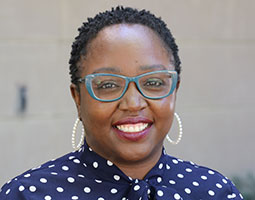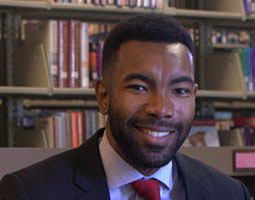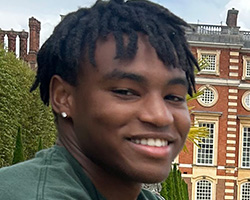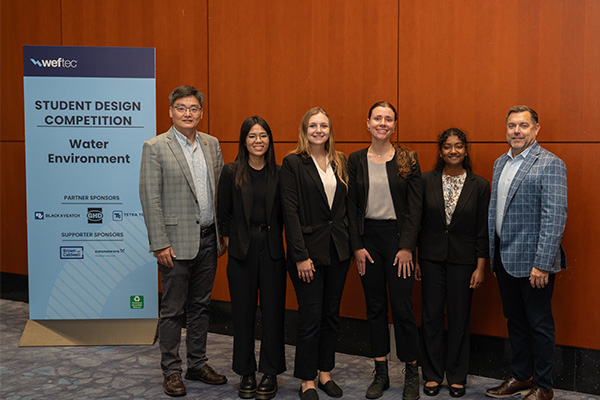McKelvey Believes easing the transition for first-generation students
Program offers mentorship, guidance and academic support

First-generation McKelvey Engineering students navigating the transition to college are finding additional support from a familiar source — each other — through McKelvey Believes. The program connects upperclass students with incoming first-year students to help improve student outcomes through mentorship, guidance and academic support.
“McKelvey Believes is in its second year, and it’s off to a strong start,” said LaVeasey Carter, assistant dean of undergraduate services. “Dean Bobick attended our kickoff luncheon and has let the community know that McKelvey Engineering is focused on building community for these students.”
Jessica Allen, assistant dean and academic adviser, says that fostering a sense of community is crucial in helping struggling students persevere.
“McKelvey Believes is reinforcing what the university is doing as a whole,” Allen said. “But it’s also unique in that it provides a smaller, more intimate setting to build relationships among our first-generation student community.”
Carter agreed, saying, “That sense of community, along with peer support, helps sustain them when things get tough.”
The program is designed to foster the organic development of peer relationships. Mentors volunteer to host or co-host monthly “hangouts” where they do a presentation or activity based on helpful topics such as financial awareness, goal setting and first failure. Mentees engage with the mentors of their choice and attend hangouts that interest them.
Dalen Ainsworth, a sophomore majoring in computer science, participated in McKelvey Believes last year as a mentee. He praised the program’s ability to help students “connect at a very real level with others about the WashU experience.” This year, Ainsworth stayed with the program as a mentor.
“I was so inspired by the way my mentors were available to help me, I wanted to pay it forward for incoming first-year students,” he said.
Later this fall, he’ll host a hangout featuring his experience studying abroad over the summer.
In addition to hangouts, the program provides students with priority tutoring in Calculus 1 and 2 and facilitates initiatives and workshops on topics such as wealth gap awareness.
Adara Ezekwe, a senior majoring in biomedical engineering and a William H. Danforth Scholar, joined the program as a mentor to help other students overcome the obstacles she felt as a first-year student.
“When I started, it just felt like everything was hitting all at once,” she said. “The transition was overwhelming. I struggled to balance school, activities and social life.”
Ezekwe emphasized the importance of McKelvey Believes providing academic resources.
“Not all students have the same academic background coming into the first year, and that becomes apparent pretty quickly,” she said. “There are a lot of resources available on campus, but this program allows you to connect with an upperclass student who has been in your shoes, taken the classes you have taken, and maybe has a similar background.”
The program’s first hangout of the 2024-25 academic year focused on the role of identity in engineering. Mentors Will Smith, a senior majoring in biomedical engineering and materials science, and Maria Lopez, a sophomore majoring in computer engineering and in computer science, led an activity that asked students to write aspects of their personal identity on wooden sticks and use them to construct an identity bridge. The purpose was to understand the importance of bringing their true, authentic selves to the engineering field and how aspects of personal identity impact their work as engineers.
The session also addressed impostor syndrome, a term used to describe doubting one’s abilities and feeling inadequate. It’s a problem that many first-generation students experience once they find themselves on campus, Allen said, and one that the program aims to help students overcome.
“McKelvey Believes feeds into our motto, ‘We Are McKelvey’,” Allen said, “It helps them understand you have a place here — we believe you belong here."







